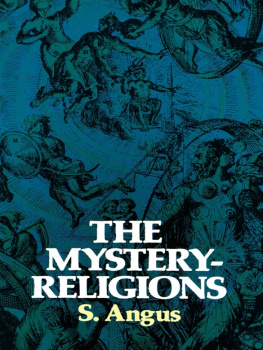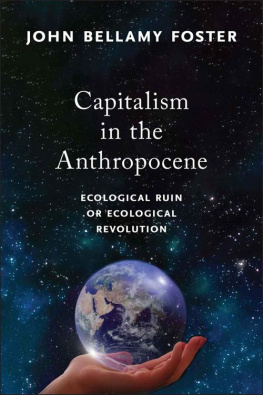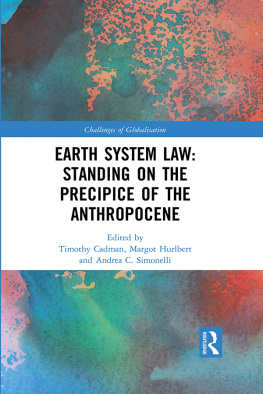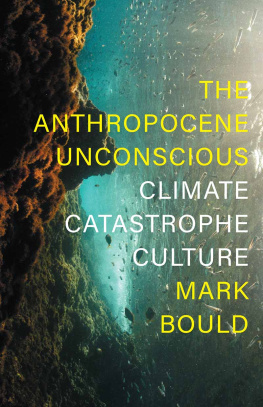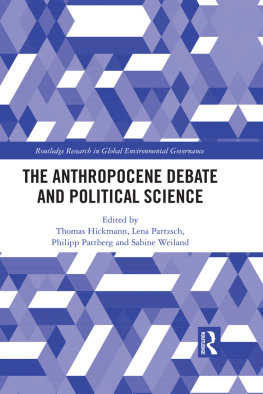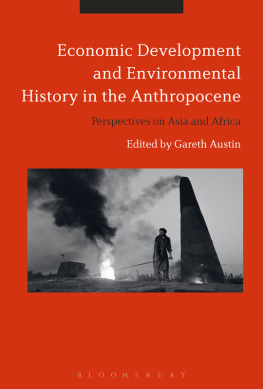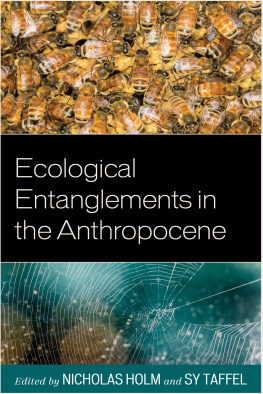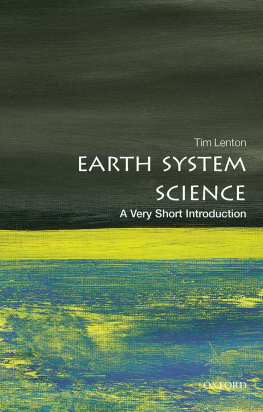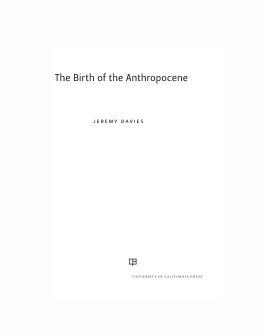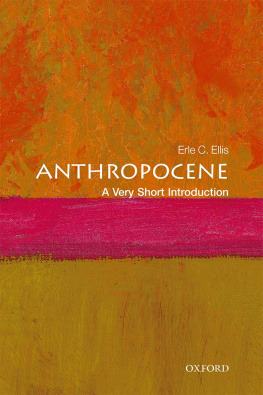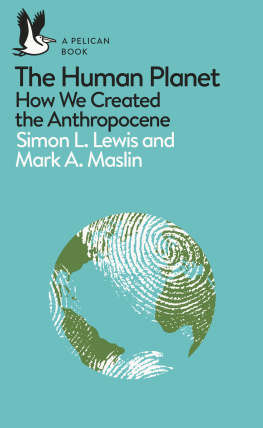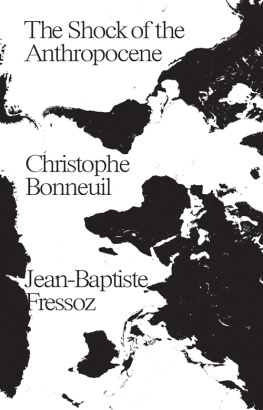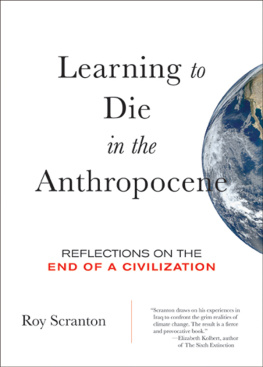Angus - Facing the Anthropocene
Here you can read online Angus - Facing the Anthropocene full text of the book (entire story) in english for free. Download pdf and epub, get meaning, cover and reviews about this ebook. year: 2016, publisher: Monthly Review Press, genre: Romance novel. Description of the work, (preface) as well as reviews are available. Best literature library LitArk.com created for fans of good reading and offers a wide selection of genres:
Romance novel
Science fiction
Adventure
Detective
Science
History
Home and family
Prose
Art
Politics
Computer
Non-fiction
Religion
Business
Children
Humor
Choose a favorite category and find really read worthwhile books. Enjoy immersion in the world of imagination, feel the emotions of the characters or learn something new for yourself, make an fascinating discovery.

- Book:Facing the Anthropocene
- Author:
- Publisher:Monthly Review Press
- Genre:
- Year:2016
- Rating:5 / 5
- Favourites:Add to favourites
- Your mark:
- 100
- 1
- 2
- 3
- 4
- 5
Facing the Anthropocene: summary, description and annotation
We offer to read an annotation, description, summary or preface (depends on what the author of the book "Facing the Anthropocene" wrote himself). If you haven't found the necessary information about the book — write in the comments, we will try to find it.
Science tells us that a new and dangerous stage in planetary evolution has begunthe Anthropocene, a time of rising temperatures, extreme weather, rising oceans, and mass species extinctions. Humanity faces not just more pollution or warmer weather, but a crisis of the Earth System. If business as usual continues, this century will be marked by rapid deterioration of our physical, social, and economic environment...
Facing the Anthropocene — read online for free the complete book (whole text) full work
Below is the text of the book, divided by pages. System saving the place of the last page read, allows you to conveniently read the book "Facing the Anthropocene" online for free, without having to search again every time where you left off. Put a bookmark, and you can go to the page where you finished reading at any time.
Font size:
Interval:
Bookmark:
Facing the Anthropocene provides a clear and thorough analysis of how fossil-fuel based capitalism has enabled humans to become a force of nature and how radical political and economic change is our only hope in limiting a far more hostile future. Highly recommended for all those interested in understanding the origins and future of the age of humans.
CHRISTOPHER WRIGHT, Professor of Organizational Studies, University of Sydney; co-author of Climate Change, Capitalism and Corporations
In this crucial political intervention, Ian Angus combines the work of natural scientists with socialist political economy to produce a synthesis far greater than the sum of its parts, one that can give us the weapons we need. Facing the Anthropocene makes quite clear what is to be done.
MICHAEL LEBOWITZ, author of The Socialist Imperative: From Gotha to Now
With great clarity and unambiguous prose Ian Angus explains why earth has entered a new and dangerous epoch. He embeds the science within its political and economic context, identifying the operation of capitalism as the root cause of our ecological and social planetary emergency. Essential reading for all those who wish to understand the world in order to change it.
CHRIS WILLIAMS, author of Ecology and Socialism
Why are the earths ecosystems deteriorating at an ever more rapid pace? What is capitalisms role in creating this new geologic era so influenced by human activity that scientists are calling it the Anthropocene? And what can be done to counter the ominous environmental trends? In Facing the Anthropocene, Ian Angus answers these and other questions critical to humanity and the rest of the natural world in a thoughtful, informative, straight-forward, and accessible manner.
FRED MAGDOFF, co-author of What Every Environmentalist Needs to Know About Capitalism
Using the latest scientific studies, Ian Angus demonstrates the scale of the environmental crises we face and shows how the priorities of the most powerful economies after the Second World War, caused an acceleration of environmental destruction. If we are to survive the Anthropocene, we will need a revolutionary alternative to capitalism. This is a handbook for every activist who wants to be part of that struggle.
MARTIN EMPSON, author of Land and Labour: Marxism, Ecology and Human History
We face a planetary emergency of which climate warming is the foremost but far from the only manifestation. Ian Angus makes it clear that chaos will not be avoided by gently nudging the prevailing socioeconomic system, but only by a global mobilisation for a habitable planet and a new political order.
DAVID SPRATT, co-author of Climate Code Red: The Case for Emergency Action
Facing the Anthropocene traces the biophysical and social roots of the environmental crisis in an attempt to help bridge the divide between the natural and social sciences. This is an important project, and there are not many better suited than Angus to propel it forward.
UMAIR MUHAMMAD, author of Confronting Injustice: Social Activism in the Age of Individualism
Ian Angus combines forensic judgement with clear words and focused political commitment. He shows that we must understand both the science of climate change and the science of social change. Everyone committed to a sustainable, socially just future should study this book.
DEREK WALL, International Coordinator, Green Party of England and Wales; author of Economics after Capitalism: A Guide to the Ruins and a Road to the Future
An outstanding contribution, not only for understanding the nature of the Anthropocene and its deadly consequences for human life, but also for explaining its social and economic causes. Ian Angus shows that the catastrophe is not inevitable: there is a possible alternative, based on values of human solidarity. Indispensable reading for ecologists, socialists, climate change activists and rational human beings in general!
MICHAEL LWY, emeritus research director, National Center for Scientific Research, Paris; author of Ecosocialism: A Radical Alternative to Capitalist Catastrophe
Fossil Capitalism and the Crisis of the Earth System
by IAN ANGUS

Copyright 2016 by Ian Angus
All Rights Reserved
Library of Congress Cataloging-in-Publication Data available from the publisher
978-1-58367-609-7 pbk
978-1-58367-610-3 cloth
Typeset in Minion Pro
Monthly Review Press
146 West 29th Street, Suite 6W
New York, New York 10001
www.monthlyreview.org
5 4 3 2 1
by John Bellamy Foster
To Lis
my partner in life, love, and hope.
You make everything possible.
its 3:23 in the morning
and Im awake
because my great great grandchildren
wont let me sleep
my great great grandchildren
ask me in dreams
what did you do while the planet was plundered?
what did you do when the earth was unraveling?
surely you did something
when the seasons started failing?
as the mammals, reptiles, birds were all dying?
did you fill the streets with protest
when democracy was stolen?
what did you do
once
you
knew?
From hieroglyphic stairway
by Drew Dellinger
John Bellamy Foster
For it is because we are kept in the dark about the nature of human societyas opposed to nature in generalthat we are now faced (so the scientists concerned assure me), by the complete destructibility of this planet that has barely been made fit to live in.
BERTOLT BRECHT
The Anthropocene, viewed as a new geological epoch displacing the Holocene epoch of the last 10,000 to 12,000 years, represents what has been called an anthropogenic rift in the history of the planet.
It is this dialectical interrelation between the acceleration into the Anthropocene and the acceleration of a radical environmentalist imperative in response that constitutes the central theme of Ian Anguss marvelous new book. It is his ability to give us insights into the Anthropocene as a new emergent level of society-nature interaction brought on by historical changeand how the new ecological imperatives it generates have become the central question confronting us in the twenty-first centurythat makes Facing the Anthropocene so indispensable.
Today it seems likely that the Anthropocene will come to be linked within science to the postSecond World War era in particular. Nonetheless, as in the case of all major turning points in history, there were signs of minor spikes at earlier stages along the way, going back to the Industrial Revolution. This reflects what the Marxian philosopher Istvn Mszros calls the dialectic of continuity and discontinuity, characterizing all novel emergent developments in history. Although the Anthropocene concept arose fully only with the modern scientific conception of the Earth System, and is now increasingly seen as having its physical basis in the Great Acceleration after the Second World War, it was prefigured by earlier notions, arising from thinkers focusing on the dramatic changes in the human-environmental interface brought on by the rise of capitalism, including the Industrial Revolution, the colonization of the world, and the era of fossil fuels.
Nature, the nature that preceded human history, Karl Marx and Frederick Engels remarked as early as 1845, no longer exists anywhere (except perhaps on a few Australian coral islands of
Font size:
Interval:
Bookmark:
Similar books «Facing the Anthropocene»
Look at similar books to Facing the Anthropocene. We have selected literature similar in name and meaning in the hope of providing readers with more options to find new, interesting, not yet read works.
Discussion, reviews of the book Facing the Anthropocene and just readers' own opinions. Leave your comments, write what you think about the work, its meaning or the main characters. Specify what exactly you liked and what you didn't like, and why you think so.


